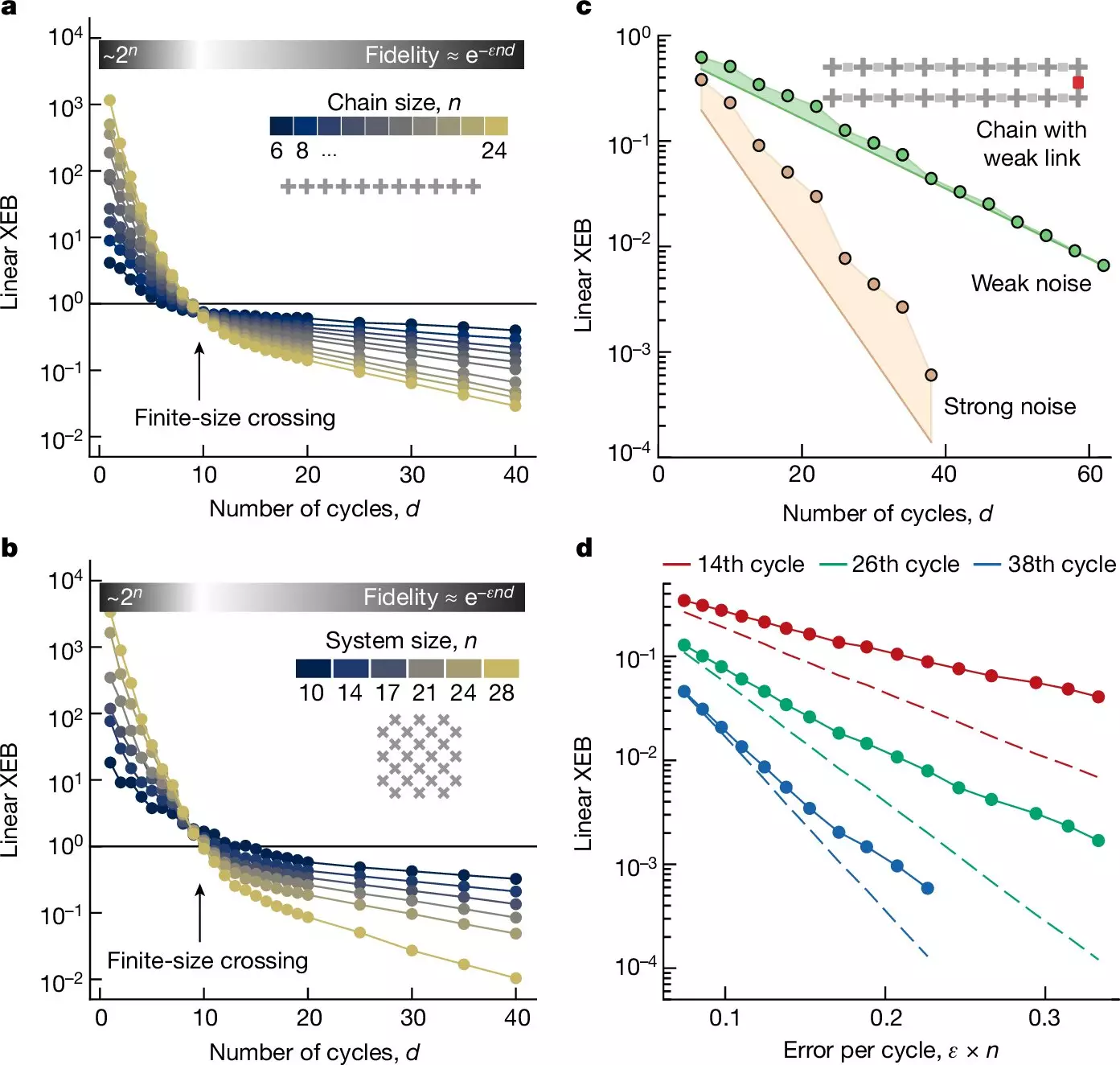In a monumental stride for quantum computing, researchers at Google have recently demonstrated that by mitigating noise within their sycamore quantum chip, the device can outperform classical computers in random circuit sampling (RCS). This innovative approach, highlighted in their publication in the esteemed journal *Nature*, showcases the potential of fine-tuning operational conditions to enhance performance significantly. The study signifies not just an incremental improvement but a crucial step towards realizing the long-aspired capabilities of quantum computers—an ambition that has eluded engineers and computer scientists for decades.
The quest to construct a truly reliable quantum computer is laden with complications, principal among them being noise interference. Environmental factors often play a disruptive role, introducing errors that computational systems must mitigate. This noise can stem from various sources, including thermal fluctuations, magnetic fields, and cosmic radiation. These interruptions constitute a formidable barrier to achieving the necessary accuracy for quantum computations. Consequently, extensive research has been focused on techniques to either correct errors post-factum or, more ideally, prevent them from manifesting in the first place.
The recent findings from Google’s research group emphasize the necessity of controlling noise to enhance computation efficiency. As they investigated modifications to their quantum chip’s operational environment—such as enclosing it within a chamber at near-zero temperatures—they observed even marginal improvements in error rates translating into significant performance gains. For instance, moving from a 99.4% error-free operation to a 99.7% threshold marked a substantial leap in performance efficacy.
Among the approaches utilized to assess quantum and classical computing capabilities is RCS, which seemingly serves a trivial purpose—generating random numbers. However, harnessing this simple algorithm can provide insights into the comparative powers of quantum versus classical architectures. In this context, Google’s advancements highlight the growing divide between quantum and classical computations. As algorithms like RCS are executed with refined techniques in a quantum setting, they offer a glimpse into the lofty promise of quantum computing: executing complex algorithms at speeds unattainable by today’s supercomputers.
Achieving a so-called “quantum advantage” indicates the moment when quantum machines can perform tasks that not only challenge but decisively surpass classical computers. The latest efforts by Google’s quantum research team signal that this moment is within reach. By limiting error rates, they have forged a path closer to constructing a functional quantum computer capable of addressing practical problems. As researchers continue honing their techniques, the dream of a robust quantum future where computations once considered infeasible may soon become a reality.
The advancements in quantum computing, particularly as illustrated in Google’s research, underline significant developments in a field ripe with promise yet burdened by challenges. The ability to reduce environmental noise and enhance accuracy represents not just a minor improvement but a pivotal juncture in the evolution of quantum technologies. As researchers persist in refining quantum architectures, the prospect of truly competent quantum computers appears increasingly tangible, marking an exciting chapter in the age of computing.


Leave a Reply